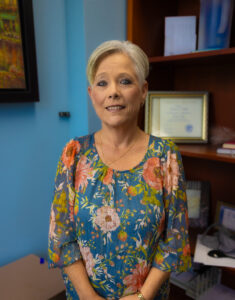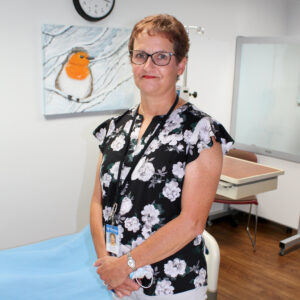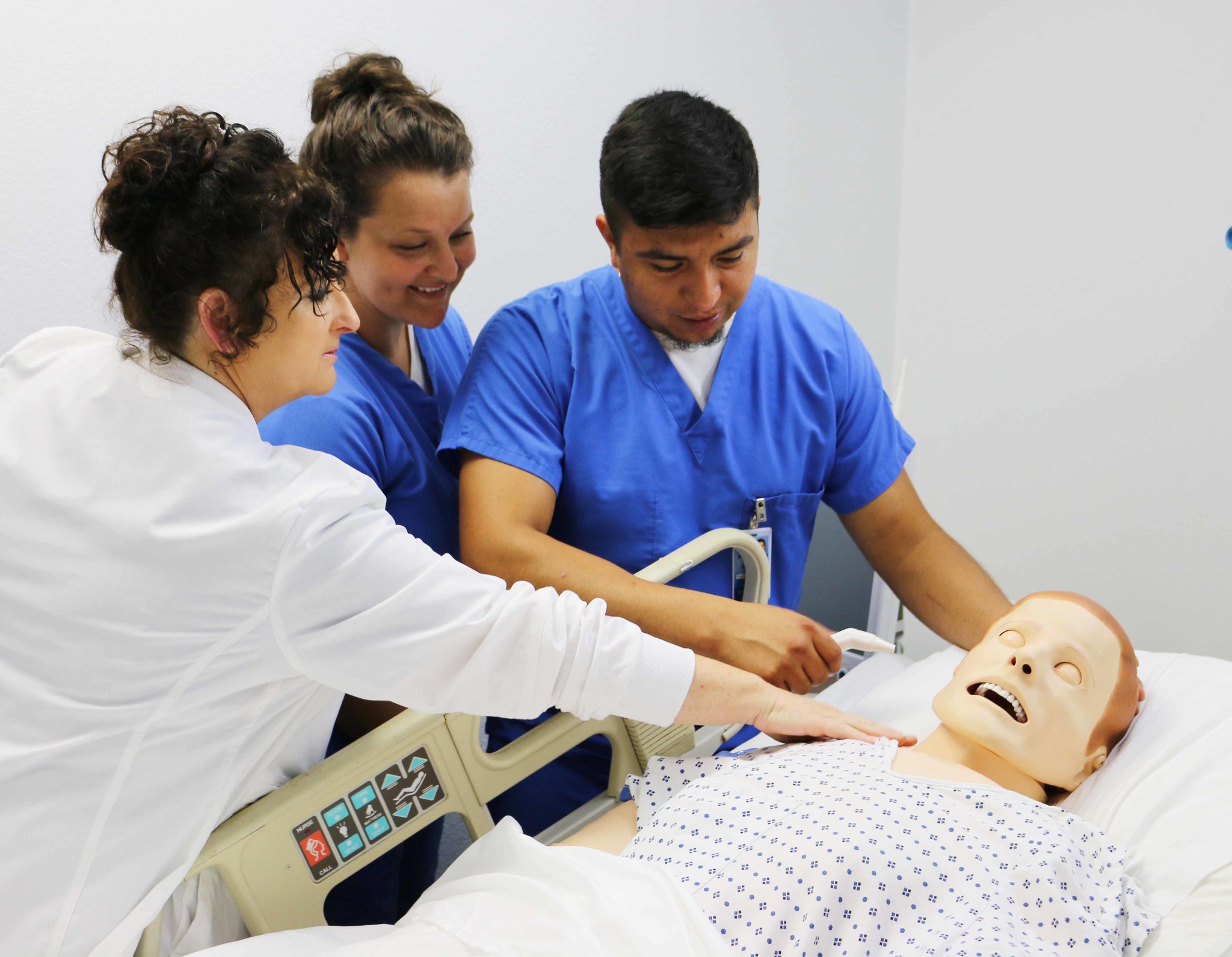LVN/LPN to RN
Take your nursing career to the next level by becoming a registered nurse with our LVN-RN transition program.
On This Page
What to Know at a Glance
Duration:
3 semester associate degree plus prerequisites
Delivery
Face-to-face
Scheduling Options
Full time; Day classes
Where it is Offered
Main Campus, #15 on the campus map; Hospitals, clinics, long-term care facilities in our area
About Our Associate Degree in Nursing Transition
Our associate degree nursing program is a two-year program that prepares students to become registered nurses (RNs). The program typically includes a combination of classroom instruction and clinical training in areas such as medical-surgical nursing, pediatrics, obstetrics, and mental health. Upon completion of the program, graduates are eligible to take the NCLEX-RN exam and become licensed to practice nursing.
Application Process
Candidates must be a licensed vocational nurse with twelve months of documented employment (within the preceding 36 months) prior to the beginning of the semester and hold an active, unencumbered license to practice as a VN/PN. Additionally, applicants will have to complete Anatomy & Physiology I/II with labs, Microbiology with a lab, General Psychology, and Lifespan Growth and Development.
Submit an application to Texarkana College. If you have questions or need any assistance , we have recruiters on hand ready to help you get started today, just call 903-823-3012.
Please note as you complete the application, you will need to have a cumulative GPA of 2.5 (on a 4.0 scale) or above on all college-level work to qualify for the ADN program
For questions about previous scores, how to take the TSI test, or exemptions please contact the Health Sciences Enrollment Advisor.
Email: Karen.holt@texarkanacollege.edu
Phone: 903-823-3351
Schedule an appointment with the Health Sciences Enrollment Advisor, Karen Holt. Call Health Sciences Division to schedule an appointment 903-823-3351
An Overall score of 60 or greater and a “Proficient” score for the Reading portion of the TEAS is required on the same testing attempt for admission.
The TEAS must be within 2 years of the program application date. A maximum of three TEAS attempts within a 12-month period is allowed. TEAS exam scores taken at proctored testing sites other than Texarkana College may be submitted.
A minimum of 15 days is required between testing attempts. Students may pay and register for the TEAS on-line at www.atitesting.com.
The exam must be taken in-person with a proctor, either at a college/university or at a PSI Testing Center. Exam scores from online remote proctoring will NOT be accepted.
An official high school transcript, GED scores and transcripts from all colleges attended must be submitted.
Process for Selection of Students
Points System
- Students applying to the Associate Degree Nursing Program will be ranked according to the “Points System Admission Process”. (Download a copy of the ADN Points System Admission Process form) Students will be accepted until all available spots are filled. Students not accepted will be placed on an alternate list. Alternate list applicants may be admitted if another student’s “Conditional Acceptance” is forfeited or revoked, provided they have met the other application requirements.
Notification of Selected Applicants
- Selected applicants will be sent notification of their “Conditional Acceptance” pending receipt of the required documentation to the Office of the Health Sciences Enrollment Advisor.
- Applicants who were not selected initially will be placed on an alternate list.
- In the event of cancellations or forfeitures, eligible applicants from the alternate list will be notified.
- The alternate list will be maintained until the current class begins the semester.
- Applicants who are not selected for admission and those that decline a position must re-apply to the program to be considered for admission.
- Any questions regarding the status of an application should be directed to the Health Sciences Enrollment Advisor
Re-Entry Admission Procedure
- Any student who is dismissed from the ADN program due to professional and/or ethical violations is not eligible for re-entry. In addition, any student who has had a clinical failure due to unsafe clinical practice is not eligible for re-entry into the program.
- If unsuccessful in a transition course, a student is not eligible for readmission into the Transition program. The student is eligible for application to the ADN Basic Program.
- Re-entry candidates should submit paperwork for re-entry no later than mid-term of the Fall or Spring semester prior to re-entry.
- Paperwork for re-entry includes:
- All Basic Admission Criteria (retake of the TEAS is not required).
- A completed “Health Science Re-Entry Counseling Interview form.” See the Dean or designated faculty member of the Health Sciences Division.
- Students must re-enter within 2 years to retain credit for nursing courses. Some testing and remedial work may be required prior to re-admission.
- Credit will not be granted for nursing courses taken more than 2 years prior to application for re-entry. A student applying for re-entry after 2 years will be required to retake the TEAS for admission.
- Under extenuating circumstances, the student may petition the Admissions Committee for an additional admission. Students with professional and/or ethical violations on prior admissions are not eligible for petition. Students with prior clinical failure due to unsafe practice are not eligible for petition.
Re-Entry Associate Degree Nursing Point System Admission Process (PDF)
Transfer Procedure
- Transfer candidates should submit paperwork for transfer no later than midterm of the Fall or Spring semester prior to entry.
- Paperwork for transfer includes:
- All Basic Admission Requirements (pg.1), including the TEAS Proctored Assessment (passing results of the TEAS taken within two years of application may be accepted).
- A “New Applicant Counseling Interview” completed with the Dean or designated faculty member of the Health Sciences Division.
- An official transcript and nursing course syllabi, or outlines with earned grades.
- Written permission and the address of the previous school of nursing for Texarkana College to obtain a letter of reference. (Late applications may result in delay of transfer process).
NOTE: Credit will not be granted for nursing courses taken more than 2 years prior to application. Some testing and remedial work may be required prior to admission as a transfer student.
Admission Requirements
Candidates for the nursing program are expected to be proficient in communication skills, math, science, computer, and learning skills, as well as have physical and mental abilities to practice nursing. To be considered for admission, the candidate must complete the procedures listed below. (Incomplete files are not considered). Download the Points System Admission Process form
The physical examination includes proof of childhood immunizations, including a completed hepatitis B vaccine series which takes a minimum of 4 months, a meningitis vaccine (unless age 22 or above), as required by Texas law, and a negative TB screening. This is required after notification in writing of “Conditional Acceptance” into the nursing program. The applicant must bring proof of having at least begun the Hepatitis B series when completing their interview.
Students must have the American Heart Association Basic Life Support Healthcare Provider certification. (AHA/BLS-HCP). Must be current throughout enrollment in the program. Students are encouraged to take the course after the “Conditional Acceptance” is received to ensure the course is current throughout the program enrollment.
Visit the CPR, BLS / ACLS, and First Aid page or call 903-823-3270 for information regarding registration.
Students must receive a negative drug screen and a “satisfactory” Texas Board of Nursing background check.
Please watch for your conditional acceptance letter following your application submission for further instructions.
- If all required documentation (TB test/CPR/drug screen/fingerprinting) is not submitted by the deadline, the conditional acceptance status will be revoked and the student will have to reapply to the program.
- If a Declaratory Order is required by the Board of Nursing (BON) for a prior offense on the criminal background check, the applicant will be given until July 1st to obtain clearance from the BON, otherwise the “Conditional Acceptance” to the program will be revoked.
- If low grades earned early in the applicant’s college career are making the GPA less competitive, the student is encouraged to ask about the “Academic Fresh Start”. See Academic Fresh Start Policy in the TC Catalog/Handbook.
- Turn in the Admission Checklist to the Enrollment Advisor with an original signature and date
More About the Associate Degree Nursing program
The faculty believes that the associate degree in nursing education should be an integral part of a community college. We therefore accept the democratic philosophy and objectives of Texarkana College as it fulfills its mission to meet the diverse educational needs of the community. In keeping with the goals of the college, the associate degree in nursing program prepares a graduate for immediate employment, provides courses that may be acceptable for transfer to other colleges should graduates seek a higher degree and provides programs for development and/or expansion of skills.
We believe that humans are holistic beings who are unique and complex with biological, psychological, sociological and communication needs that vary throughout life. The faculty believes that health, defined as the process of well-being, is the right of every individual. Health services should be available to each through the cooperative efforts of a wide range of professions and disciplines, commonly called the interdisciplinary health team. The inherent dignity of the individual gives one the right to actively participate with the health team in decisions which affect one’s state of health.
Nursing works independently as well as collaboratively with other health disciplines to provide individualistic and cost effective care with clients of all ages. The faculty believes that nursing includes the promotion of health, prevention of illness, and the care of the ill, disabled, and dying people. Advocacy, promotion of a safe environment, and education are also key nursing roles. (Adapted from the International Council of Nurses, 2003). Furthermore, the faculty believes that nursing should constantly encourage client independence.
The knowledge base and practice of the nursing profession include promotion of health, management and monitoring of health and management of common, uncommon, complex and rehabilitative problems with predictable and unpredictable outcomes. The knowledge base and practice of the associate degree in nursing student is directed toward use of the nursing process to provide or coordinate direct nursing care for a limited number of clients with common, complex, or rehabilitative problems in structured acute and long-term health care settings. Such clients are identified as individuals or family/significant others.
Acute and long-term healthcare settings, for which the graduate of the associate degree in nursing program is prepared to enter, include geographical or situational environments where the policies, procedures, and protocols are established to support critical thinking decisions, and there is available consultation. The associate degree in nursing student functions in accordance with the differentiated essential competencies of graduates of Texas nursing programs in the role of member of the profession, provider of patient-centered care, patient safety advocate, and member of the healthcare team. Upon graduation, the associate degree in nursing student is prepared for a beginning staff position under supervision in various healthcare settings.
The faculty believes that individuals learn in a variety of ways and come into the learning situation in different stages of development; therefore, learning is believe to be:
- Composed of cognitive, affective and psychomotor components.
- An additive process, progressing from simple to complex.
- Demonstrated by a change in behavior.
- Enhanced by a multi-sensory approach.
- Individualistic, according to life experiences and personal characteristics.
As the effort and energy put into learning is under personal control, learning is ultimately the responsibility of the student. The faculty shares the responsibility to the extent that they are accountable for curricular planning and for the creation of the learning environment. Throughout the learning process, the faculty will encourage development of a nursing conscience based upon professional, moral, ethical and legal standards.
The faculty further believes that as needs of society change, so do learning needs of the professionals who serve it. Continuing education after graduation is an inherent part of one’s professional obligation. In coordination with existing college continuing education services and with community groups, the nursing faculty responds to learning needs by identifying, planning, and otherwise ensuring implementation of continuing education opportunities for health care personnel.
Program Student Learning Outcomes (PSLO) and General Education Core Competencies
The following associate in nursing degree program objectives are the outcomes, which shape the curriculum and are the criteria for measurement of its success. This reflects the Differentiated Essential
Competencies of graduates of Texas nursing programs as a member of the profession, provider of patient-centered care, patient safety advocate and member of the healthcare team. The graduate will:
- Apply clinical judgment using the nursing process to deliver and manage safe, high-quality, patient-centered care across diverse populations.
- Integrate evidence-based practice and quality improvement principles to advocate for and implement safe, effective, and equitable nursing care.
- Implement principles of delegation, management, and leadership to coordinate nursing care across healthcare settings.
- Demonstrate therapeutic communication skills that foster trust, civility, and emotional safety when engaging with patients, families, and members of the interdisciplinary healthcare team.
- Demonstrate clinical reasoning to implement evidence-based, ethical, and legal nursing interventions that promote holistic health across diverse populations.
- Utilize patient care technologies and informatics systems to enhance safety and support clinical decision-making.
Rev. 11/25
- Critical Thinking
- Leadership
- Adaptability
- Management
- Problem Solving
- Technical Proficiency
- Life-long Learning
- Cultural Awareness
- Ethical Decision Making
- Professionalism
- Time Management
- Organization
- Safety Awareness
Possible Careers and Salaries
Registered Nurse
$66,273
Nurse Practitioner
$115,433
Nurse Anesthetist
$214,573
Dates & Deadlines
Spring Start
Applications open July 1 and close October 1.
July 1 – October 1
Tuition Costs
Approximate total for the associate in nursing degree program cost for full-time in-district (Bowie County residents) is $8,949.
Program Contacts



Request More Information
Please let us know if you have any questions about our Nursing Programs. Fill out the form and someone will get back to you soon.
